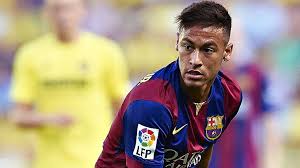By Samindra Kunti
August 18 – In December the FIFA’s Executive Committee’s approval to ban third-party ownership of player’s economic rights (TPO) sent shockwaves through Brazilian football due to the prevalence of third-party arrangements. The early effective date, January 2015, had investors and clubs taken aback, worried with the possible consequences of the new rule, but what effect has the ban had so far on the Brazilian market?
So far, it seems, not much. The fear that there would be a mass exodus of top Brazilian club players seeking the higher paid European leagues has not been the reality, with clubs so far being able to retain their main playing assets.
TPO has long been an ingrained practice in Brazilian football, because it allowed clubs to raise finance with investors injecting cash into clubs in return for a percentage of the players’ economic rights. For investors, the return on investment can potentially be very high.
Brazil’s boy wonder Neymar is subject of a third-party arrangement. Santos feared losing Neymar at an early age and therefore tied him to the club with a vastly improved contracted, by selling 40% of Neymar’s economic rights to DIS. Teisa, a group of former Santos directors, also owned 5% when Neymar secured his transfer to FC Barcelona. Chelsea’s Oscar and PSG’s David Luiz are two other major Brazilian players subjected to TPO construction.
In Brazil, TPO has become the main funding mechanism for clubs, who often have no other asets. 90% of the players in the Brazilian top-flight are involved in third-party ownership schemes, according to figures from the consultancy firm KPMG. Further reports by Brazilian media outlets show that even under-15 players have parts of their economic rights in the hands of investors.
The Brazilian Football Confederation CBF enshrined FIFA’s ban in the new national ‘Regulations on the Status and Transfer of Players. The prohibition came into force on May 1, 2015, but the CBF’s rules allow for all contracts signed prior to the ban taking effect to remain in force until the date of their termination, without the possibility of an extension.
So far, the ban seems to have done little to change market dynamics. Cruzeiro, the current defending champions, have done deals with Real Madrid, Dnipro, Guangzhou Evergrande (China) and Al Alhi with investors keen to cash in and the club boosting their revenue stream. Players are being sold to foreign clubs, but not at a noticeably greater ratio than in past seasons.
With TPO banned, ‘financial assistance’ is a form of third party investment in vogue and a part-way around the restrictions that allow clubs to raise money against their ley player assets. An investor will lend money to a club with the specific purpose of acquiring players, but the payment of debt is not linked to the economic rights of the player. Brazilian law governs when the club has to pay the investor, the interest rate and applicable indexation.
In the long run the TPO ban could prove to be beneficial for Brazilian clubs, forcing them to improve their business management standards as they seek increased sponsorship and commercial deals to finance sporting operations as they rely less on trading player rights.
Contact the writer of this story at moc.l1741555736labto1741555736ofdlr1741555736owedi1741555736sni@i1741555736tnuk.1741555736ardni1741555736mas1741555736

